For Colored Girls
 for some disturbing violence including a rape, sexual content and language.
for some disturbing violence including a rape, sexual content and language.
Reviewed by: Brian C. Johnson
CONTRIBUTOR
| Moral Rating: | Very Offensive |
| Moviemaking Quality: |
|
| Primary Audience: | Adults |
| Genre: | Drama |
| Length: | 2 hr. |
| Year of Release: | 2010 |
| USA Release: |
November 5, 2010 (wide—2,000+ theaters) DVD: February 8, 2011 |
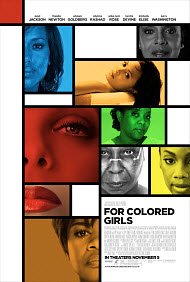

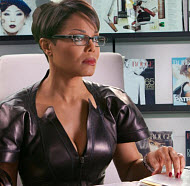
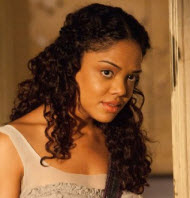

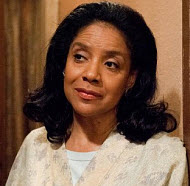
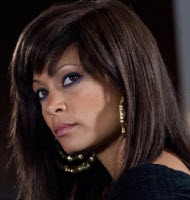

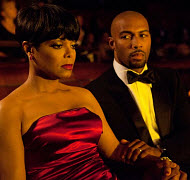
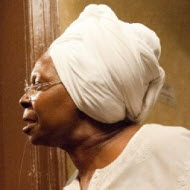
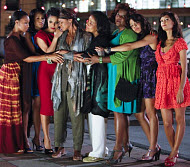

poetry in the Bible
POVERTY—What does the Bible say about the poor? Answer
Poor in the Bible
Why does God allow innocent people to suffer? Answer
Did God make the world the way it is now? What kind of world would you create? Answer
What about the issue of suffering? Doesn’t this prove that there is no God and that we are on our own? Answer
Does God feel our pain? Answer
ORIGIN OF BAD—How did bad things come about? Answer
TRUE LOVE—What is true love and how do you know when you have found it? Answer
Biblical women with admirable character, include: Mrs. Noah, Mary (mother of Jesus), Esther, Deborah, and Milcah, daugher of Zelophehad.
| Featuring |
|---|
| Thandiwe Newton (Tangie / Orange), Kimberly Elise (Crystal / Brown), Janet Jackson (Jo / Red), Loretta Devine (Juanita / Green), Anika Noni Rose (Yasmine / Yellow), Kerry Washington (Kelly / Blue), Michael Ealy (Beau Willie), Tessa Thompson (Nyla / Purple), Phylicia Rashad (Gilda), Whoopi Goldberg (Alice / White), See all » |
| Director |
|
Tyler Perry |
| Producer |
| 34th Street Films, FCG Productions, Lionsgate, The Tyler Perry Company, Ozzie Areu, Roger M. Bobb, Deborah Evans, Joseph P. Genier, Paul Hall, Tyler Perry, Nzingha Stewart |
| Distributor |
“Many voices. One poem.”
Tyler Perry goes art house? Known most for his comedic plays and movies featuring the ever-colorful Madea, a take-no-prisoners, tell-it-like-it-is, don’t mess with her grandmother (Perry in a body suit and wig), in his latest film, “For Colored Girls,” Perry takes his loyal fans to a new and much darker level, and in doing so, may have broadened his own skill as a writer and director.
This is a solidly different direction for Perry; unlike most of his films where his credits include writer, director, producer, and star, Perry the actor is missing from this movie. Don’t feel bad, though, because the cast is a veritable who’s who of Black Hollywood and music. The film stars the likes of Perry films’ veterans Kimberly Elise (“Madea’s Family Reunion”) and Janet Jackson (“Why Did I Get Married?” and “Why Did I Get Married Too?”) and a whole host of Hollywood notables: Whoopi Goldberg, Loretta Devine, Thandiwe Newton, Anika Noni Rose (“Dreamgirls,” “The Princess and the Frog”), Macy Gray, Kerry Washington, Phylicia Rashad (“The Cosby Show”), and Hill Harper (“CSI: NY”). In some way, not seeing Perry in this film raises its stature to something more than self-aggrandizement.
Additionally, “For Colored Girls” reintroduces the world to acclaimed poet and playwright, Ntozake Shange, whose brilliant poetry inspired the film (adapted for the screen by Perry). Shange’s work, “For Colored Girls Who Have Considered Suicide When the Rainbow Isn’t Enuf” (written in the 1970s) chronicled the Black female experience in the gritty, urban jungle telling stories of rape, incest, domestic violence, love lost, found, and lost again, drug abuse, crime, pregnancy, and more. Perry adeptly uses Shange’s words throughout the movie, rather than reinterpreting for the contemporary audience. While a considerable strength of this film, using Shange’s poetry as dialogue may confuse the novice moviegoer and certainly Perry’s usual younger audiences, much like those who were taken aback by the 1990s William Shakespeare’s “Romeo and Juliet” (starring Leonardo DiCaprio and Claire Danes) which used the original 16th century language of the Bard.
Some have charged Perry as a backslider for his dramatic shifts of late. His theatrical roots are Christian; it can be said that it was his Christian audiences who made Perry a national figure, but many of his loyal fans have felt abandoned in the last couple of films he has created. The coarse language and mature subject material of films like “Why Did I Get Married Too” and “I Can Do Bad All By Myself” and “The Family that Preys” have turned many Christians away from his films; “For Colored Girls” outdoes them all—brief nudity, violence, language, rape, wanton sexuality, abortion, murder—definitely not your average Christian fare. In fact, some may find offense in the characterization of Christianity in the film. One character, Alice (Goldberg) is a religious fanatic who condemns everyone to hell for the slightest infraction that she deems unworthy, even to the point of trying to perform exorcisms on her daughters.
Yet, for all of this, “For Colored Girls” is a story that needed to be told and is a film that truthfully needs to be seen. This is not a family film, but mature Christians who want to see accurate portrayals of women’s struggles to find intimacy, freedom from abuse, overcoming the obstacles of poverty, hopelessness and despair, should watch this movie. They will find a rare honesty coupled with a celebration of women’s wit and wisdom. Because of its title and cast, some may label this movie a niche film targeting only a specific audience; that would be a mistake. “For Colored Girls” speaks to multiple audiences about strength in unity and the triumphant spirit that has taught women to survive horrible atrocities and inequalities throughout history.
Violence: Extreme / Profanity: Extreme / Sex/Nudity: Heavy
See list of Relevant Issues—questions-and-answers.


I would recommend adults only watch it. It gives you a glimpse into lives that we sometimes try to avoid, but life is just like this movie. Only Our Lord and Savior can save us from the world. And clearly they all needed a more moral rep for Jesus Christ. I would have liked to have seen that in the movie more. Only the blood of Christ can cover all that hurt, pain and suffering.
Moral rating: Offensive / Moviemaking quality: 4
Perry has made a fortune off his Christian audiences and many will be disappointed to find that he went off track by placing nudity in this film. I think Mr. Perry is trying to get an Oscar nomination (using the same type content as the movie Precious). I understand that the subject of rape, incest, murder etc does happen. When you consider yourself a Christian, you should have a different standard. People should be able to tell a christian by his or her works. I felt like Mr. Perry would change because of being around certain Hollywood elite who have no sense of moral or God fearing values. How is the world supposed to know who you represent when one does things that are contrary to holiness?
I feel that we as so called Christians take our God for granted thinking that he will accept anything, but righteousness. The world that we live in is far from holy, but do we have to compromise our christian values to fit in. It seems that Mr. Perry in on the road to compromising to fit in.
I hope that Mr. Perry will continue to tell stories that will help people to change whatever negative circumstance that they are going through, but not by making films that use extreme profanity, nudity to do so.
I hope that everyone will pray for Mr. Perry because it seems that the enemy is trying distort what Perry set off to do in the begriming of his career to strengthen the people with laughter, forgiveness, love and the hope that God is able to bring them out of darkness.
Moral rating: Average / Moviemaking quality: 4
Moral rating: Extremely Offensive / Moviemaking quality: ½
The cursing was over the top, the rape scene was outrageous, Christianity was ridiculed and I had a strong feeling of uneasiness in my inner man. As a person who has seen abuse up close and personal I understand the importance of dealing with the issues brought up in this movie and exposing them through the media. Yet, there is a way to show that in a movie without exposing the viewer to unnecessary excesses, for example (showing a male naked from the back during a rape scene.) I do not recommended this movie for anyone to go and see.
Moral rating: Very Offensive / Moviemaking quality:
Moral rating: Extremely Offensive / Moviemaking quality: none






I’m not “coloured” or American, but a woman of the world, as we are in this day and age of virtually no boundaries. The scenes, cursing, etc., are necessary to drive home the point—we are not Amish or living in a religious concave—our homes may be straight, we don’t curse, but stuff still happens around us and in our community. This production communicates thus in only the best way the themes here can be communicated, but still manages to not be vulgar.
I’m glad that the some commentators are shocked—that would cause them with all that uncomfortability to REALLY see what goes on around them and get involved to prevent some of the tragic things that could happen—that once in a while in our rose tinted cotton-candy world of comfortable indifference.
I’d go on and on about this movie, but I’d do like my girl and get copies for my other girls. But the best part would be if more men got to watch it—and get a foot in that door when we so often think when we turn around and sleep, or hold them, or kiss our loved ones “Does he really know—I mean REALLY??” 10/10 viewer rating: For REAL adults only
My Ratings: Moral rating: Good / Moviemaking quality: 5